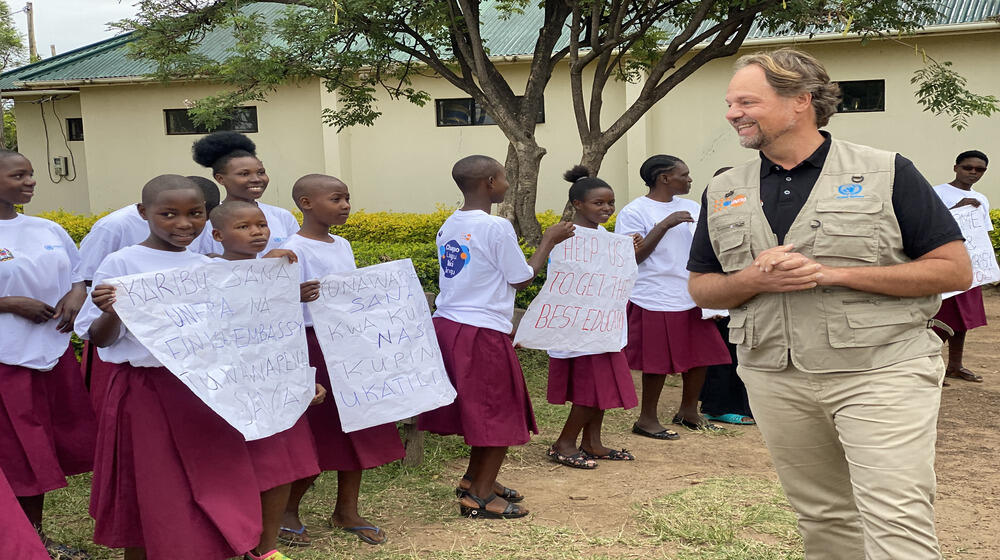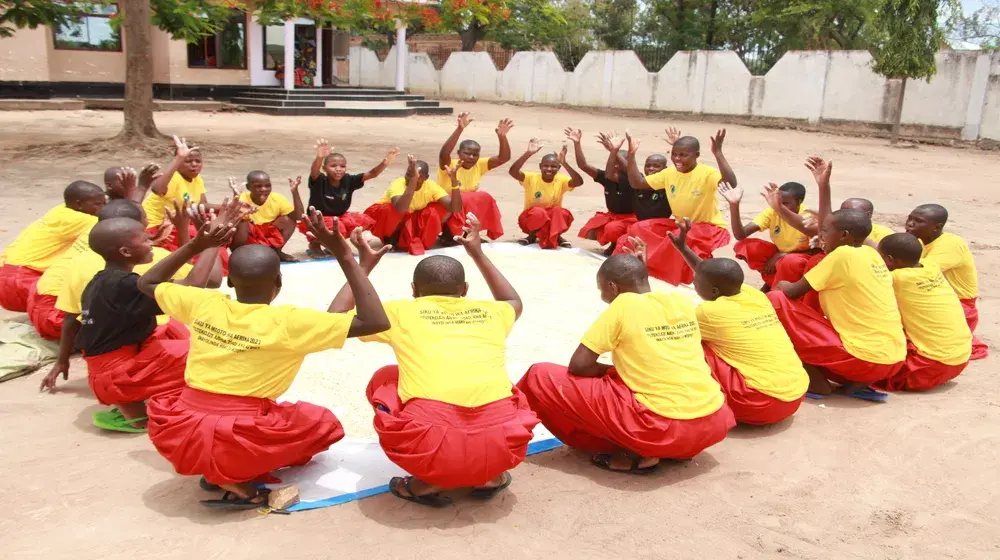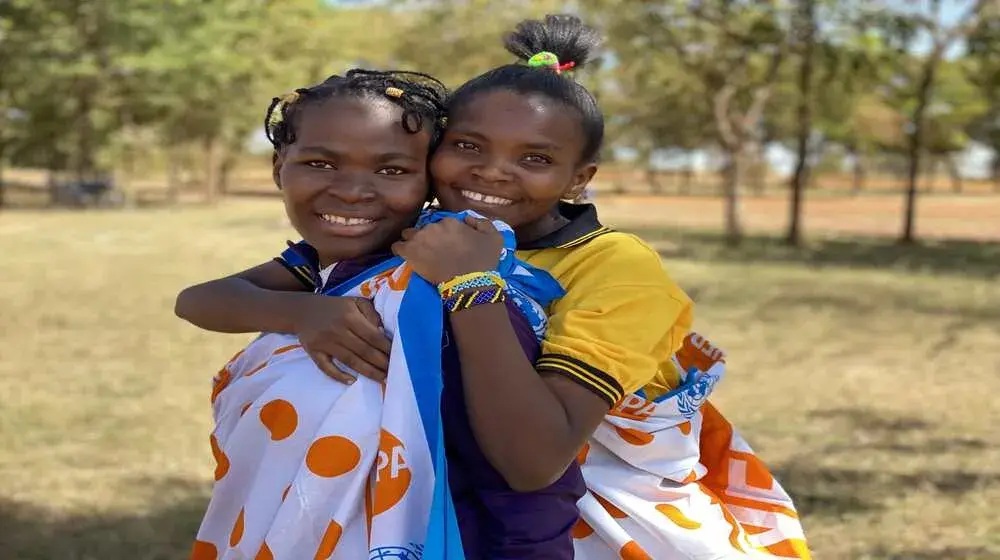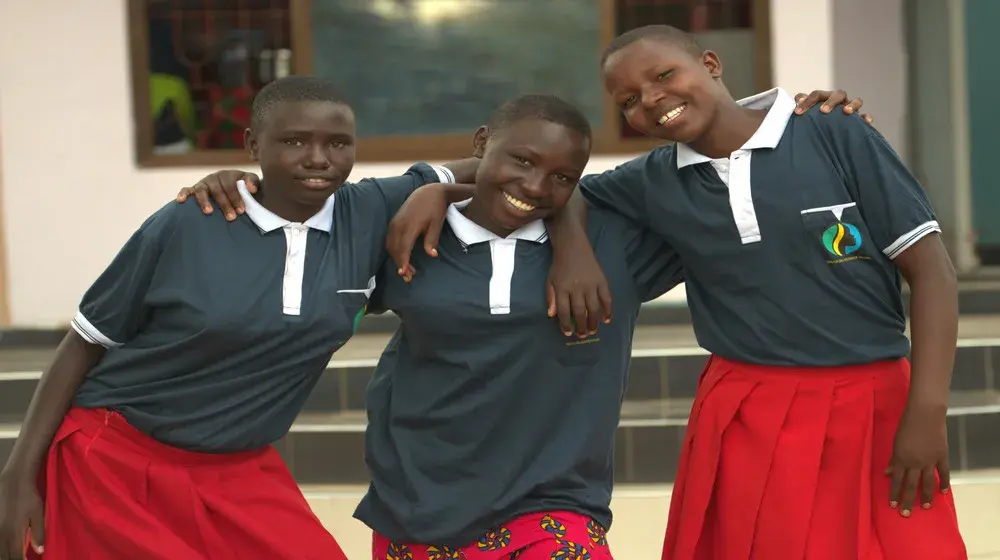At the fragile age of 10, Ghati stood at the crossroads of tradition and freedom—and she chose a path that led her away from the harrowing practice of female genital mutilation (FGM), which consequently shaped her own destiny.
Her mother, enlightened about the devastating impacts of this ritual, supported her decision, but they faced staunch opposition from their family, who believed in adhering to a tradition that promised social acceptance at the cost of physical and emotional trauma. Ghati's story is a common story often told—countless young girls with their basic human rights violated.
FGM inflicts irreversible harm on girls and women, with grave consequences on the lives of countless young girls. FGM is not just a cultural ritual; it jeopardizes the health and well-being of girls, affecting their education, derailing their career prospects, and echoing the deep-seated gender inequalities embedded in our societies.
On this International Day of Zero Tolerance for FGM, we acknowledge the Government of the United Republic of Tanzania's progress in reducing FGM prevalence from one in seven girls in 2010 to one in twelve girls in 2022. However, with uneven regional progress in the country and a looming deadline to meet the Sustainable Development Goals, our fight against FGM requires an intensified, multi-faceted approach to meet our national target.
Over a decade of action through global, regional, and national programmes has provided us with strong evidence, and the what, the why - and our direction is clear. Efforts to eradicate FGM in Tanzania require a combination of legal measures, improved access to accessible, culturally sensitive services, including the prevention of medicalization for girls at risk and support services to FGM survivors provided by skilled professionals, awareness campaigns, education, community engagement, and empowerment of women and girls to raise their voices and claim their rights.
Empowered voices go further – and longer. We must remain steadfast in our refusal to give up the fight for every woman and girl to enjoy their right to bodily autonomy and good health. The heart of these efforts lies in empowering the girl child, ensuring her voice is heard through educational programs, life skills training, and entrepreneurship opportunities and supporting alternative rites of passage that celebrate the transition of a girl child into womanhood but do not involve genital mutilation.
Awareness campaigns should be intensified, using culturally sensitive methods to reach the hearts and minds of those who may be perpetuating or supporting this practice. Religious and community leaders and men and boys as fathers, brothers, decision-makers, and custodians of culture hold considerable influence; their commitment to condemning and actively discouraging FGM is crucial. On the other hand, partnering with women-led and FGM survivor-led organizations, especially at the grassroots level, who have an in-depth understanding of the challenges that women and girls face, are key to promoting social and gender transformation and vital resources on how to advance their rights. By fostering collective and open dialogue, community leaders and members can challenge traditional beliefs that have sustained this harmful practice for generations.
The fight against FGM is not just a moral imperative but a necessary step toward achieving gender equality and empowering future generations of Tanzanian women. Tanzania must lead the charge in eradicating FGM, setting an example for the region and the world. To achieve our goal of zero FGM cases by 2030, we must unite our voices as players in our movement, including governments, policymakers, development partners, academia, national and international organizations, grassroots, advocates, media and beyond. Only through collective will and action can we break free from the shackles of tradition and forge a path towards a more equitable and compassionate society, securing the human rights and dignity of its female citizens once and for all.
Mark Bryan Schreiner serves as the Representative of the United Nations Population Fund (UNFPA) to the United Republic of Tanzania
For Media queries and further information please contact:
Warren Bright,
Communications Analyst,
UNFPA Tanzania,
Email: bwarren@unfpa.org,
Mobile: +255 764 43 44 45





